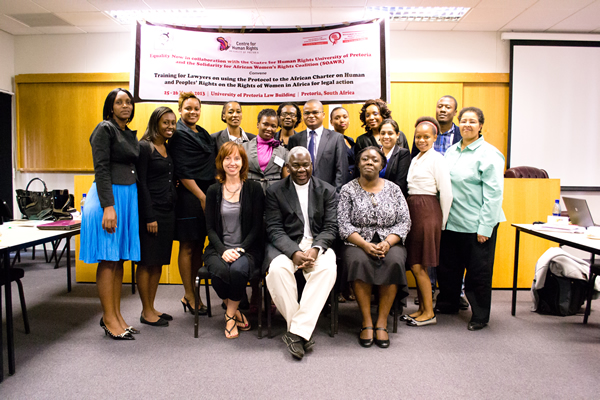Equality Now, Solidarity for African’s Women's Rights and the Centre for Human Rights recently collaborated to host a training for lawyers on using the Protocol to the African Charter on Human and Peoples’ Rights on the Rights of Women in Africa for legal action on 25 and 26 March 2013. The participants from this program were selected from partner organizations across Southern Africa including private law firms and human rights institutes. They ranged in expertise from litigation specialists to legal advisers in both the public and private sector.
It was an intensive two day session packed with varied and informative presentations including from the Southern African Litigation Centre, successes and challenges noted in strategic litigation of certain cases; as well as a presentation by Professor Frans Viljoen on using the Protocol to advance women's rights and the existing regional mechanisms-The African Commission, African Court and Regional Economic Communities.
The participants also took part in a moot exercise based on a scenario democratically determined by the group based on a set of facts chosen from the group. A woman was raped and the police have failed to prosecute the matter to date despite a statement from the victim and other witnesses identifying the perpetrators. In this matter the participants argued before the Commission against Mozambique alleging violations of several provisions of the Women's Protocol. The key lesson learned from this exercise was the need to read the Protocol on Women's Rights in conjunction with the African Charter, its parent document. It was also an exercised designed at showing participants how to engage effectively with these treaty documents and their contents in an attempt to hold states accountable for failure to realise their obligations under these documents.
It was a vibrant session and several critical issues came up for discussion that will surely be followed up. These include a commitment to use the Commission’s interpretive function to clarify certain aspects of the Protocol by bringing more cases for adjudication. Ultimately a network was created to support the participants in the litigation of future human rights issues and to also provide a forum for discussion.
For more information kindly visit the Equality Now website at www.equalitynow.org


